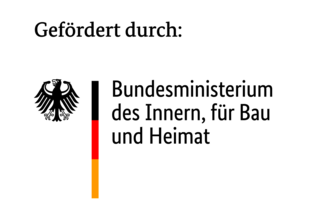Broad-based study: Racism as a threat to social cohesion
Sub-project: Bureaucratic practices and markers of difference: a video-based organizational ethnography in federal, state and municipal authorities
Description of the overall project
On behalf of Germany’s Federal Ministry of the Interior and Community (BMI), the Research Institute Social Cohesion (RISC) is conducting a broad-based study of racism in public institutions. The work began on 1 October 2021 and will continue through 2024. In 23 individual projects at nine locations in Germany, researchers analyse racism in public authorities at the federal, state and municipal levels and its potential threat to social cohesion. The study is a key project within the final report and catalogue of measures of the Cabinet Committee for the Fight against Racism and Right-Wing Extremism adopted by Germany’s Federal Government in May 2021. An inter-ministerial project group supports the research process at the working level. The RISC is coordinating this research process, which is led by Professor Gert Pickel and Professor Matthias Middell (University of Leipzig). Together, the RISC researchers want to shed light on the extent to which racism occurs in public institutions, has a divisive effect in organizations and threatens social cohesion. “The scale of discrimination in public institutions and how it develops depend very much on how consensus actually forms in a society and what priorities a society sets when building cohesion,” says Matthias Middell, the study leader. With its broad interdisciplinary expertise, it is here that the RISC’s strength lies, says Middell, “because it examines how and on what basis people in Germany, but also in neighbouring societies, envisage and experience social cohesion. At the heart of this is the key question: Is the radical rejection of racism part of social consensus or not?” (cf. https://www.fgz-risc.de/forschung/inra-studie)
Description of the sub-project
Everyday racism manifests itself in the shape of small gestures, unfortunate or deliberately hurtful choice of words, looks or distanced behaviour and is expressed in interactional, socio-practical and organization-specific contexts. The particular research interest focuses on intentional and non-intentional discriminatory practices, which are embedded in organizations’ normative everyday culture and in the professional culture of the people working there. The study foregrounds the different ways in which social difference is made relevant, which often occurs implicitly and “unobserved” in bureaucratic institutions and their decision-making processes. By means of video-based participant observation, standardized administrative procedures and other iterative processes at the Federal Employment Agency (BA) and the Federal Office for Migration and Refugees (BAMF), as well as their state and municipal contact persons, are studied from the perspective of organizational sociology. Apart from concentrating on interactive procedures and processes related to the formation of social events (cases) occurring at these institutions, references to texts and documents are also examined.
Contribution to the overall project “Racism in institutions and social cohesion”
The sub-project contributes to a fundamental analysis of the influence of bureaucratic everyday racism on social cohesion from the perspective of social theory. Against this backdrop, the project serves to produce a scientific picture of socialization processes with regard to established practices and set-ups in everyday institutional life, to examine them critically and to analyze them in a solution-oriented way. How representatives of public authorities understand discrimination is thus also under study. Consequently, our project contributes to answering the questions addressed in the overall project regarding dynamics in the understanding of racism in public authorities. With this theoretical objective and the planned application-oriented output, the project makes a direct contribution to the transdisciplinary results targeted by the overall project.

